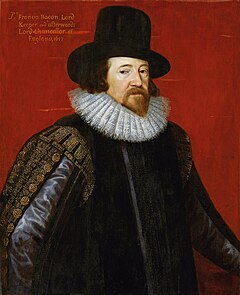Bacon's idea has withstood the test of time, repeatedly: no credible scientist today would deny the usefulness and, to a point, integrity of his approach to evidence. Most tellingly, Bacon was not an irreligious person. He was a devout Anglican who believed fervently in God. Yet he also believed that we should take nothing for granted, that we should not embrace any idea or theory without evidence.
 Hence, when someone accuses a religious person of having faith without evidence, she is missing the point: in Bacon's world, faith cannot be faith without evidence.
Hence, when someone accuses a religious person of having faith without evidence, she is missing the point: in Bacon's world, faith cannot be faith without evidence. As the late British philosopher Anthony Flew, a lifelong atheist who, in his eighties, decided that, after much thought and study, God in fact existed, remarked, "I followed the evidence."
No comments:
Post a Comment